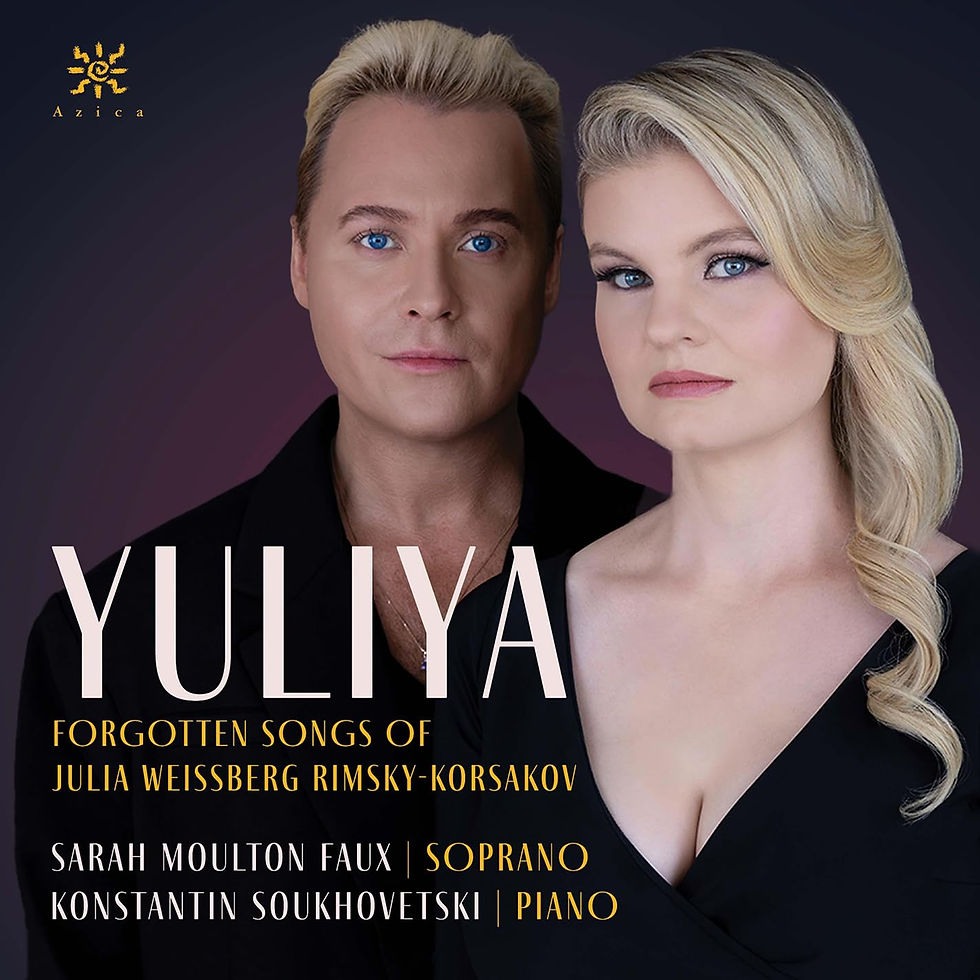I Am Not a Rock Star
- Jul 31, 2013
- 3 min read
Updated: Jun 15, 2020

I am not a Rock Star,” says 22-year-old Canadian-born pianist Marika Bournaki, heroine of the recently Film Society of Lincoln Center released movie that shares its title with that very quote. Soulful, dedicated Director Bobbi Jo Hart follows Marika’s idiosyncratic search for personal meaning and struggle with the day-to-day difficulties of becoming a legendary performer. Hart details Marika’s early travels from home in Montreal to her weekly piano lessons at New York’s Juilliard Pre-College Division, as well as her subsequent move to New York at age 16. The film documents Marika’s coming-of-age as she travels the road to international recitals. Hart’s film manages to vividly become Marika’s visual diary from her developing teenage years, touching on her mood swings, hopes, and fears with great affection, yet keeping a non-judgmental objective point of view reserved for an onlooker.

Hart explores all the hardships encompassed in pursuing a pianistic career, which have impacted the synergy of Marika’s entire family. Marika’s father, a former classical trained violinist himself, took on much of the young star’s managing and escorting chores on tour, while Marika’s mother stayed at home with the younger siblings. While she has a very close relationship to Marika, she felt the impact of the seperated roles on the family’s life. Marika’s younger siblings seem to have learned early on that Marika’s career would take precedence over their lives and relationships. It is the piano that has taken center stage in Marika’s life, a fact with which she comes to terms throughout the film, expressing how her outlook towards the piano’s role in her life continually transforms her. “We all just want the best for our children,” says Pierre at the movie’s New York premiere, which included a taste of Marika’s talent at the piano, which was hauled into Indies, the restaurant adjacent to the movie theater, for the reception following the screening. The film encourages the movie viewer to critically analyze the legitimacy of this very notion, asking them to think about what truly is and was best for Marika and her career, and allowing them to identify with her growth and self-actualization.
The documentary reveals that Marika’s self-doubt and refusal to adhere precisely to her father’s counsel ultimately allowed her to find her own voice and destiny within her career. “I should play Rachmaninov instead of Bach, to impress the jury of the YCA, exactly how? You must be f…ing kidding me!” she argues, trying to validate the legitimacy of her own thoughts on what would best capture her talent, and finally deciding to forego the audition because of her lack of complete preparation. While a music career may have been pushed onto her unconsciously, ever since she innocently stepped out on stage as a child, Marika has managed to take control of her direction, and identify her love for music, which has become her “religion.”

Photo:Marika Bournaki and Pierre Bournaki
Marika finds support in the tutelage of Veda Kaplinsky, her dedicated teacher and head of the piano faculty at Juilliard, as well as in David, the handsome and caring “other star” in her life, who is a talented pianist himself. Playing four-hands at the piano in sweet harmony, may have helped Marika find her place in the music world; but mostly it is her communicative ability at the piano that connects her strongly to her audiences, and has motivated her to get involved in outreach programs that bring music to schoolchildren. Marika shines on stage and off, rock star or not.



Comments